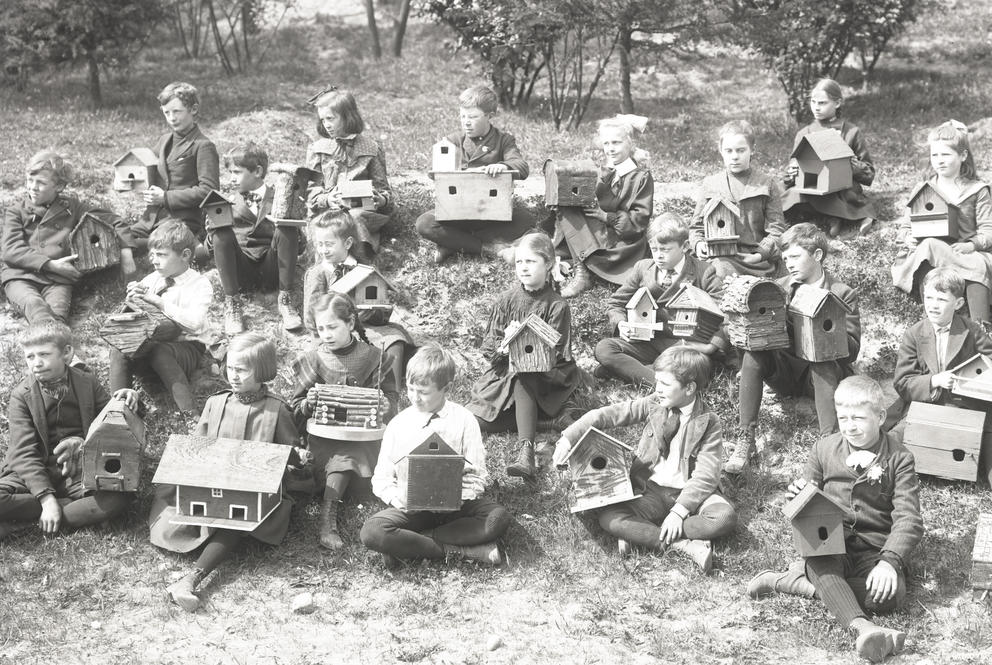Podcast | How a Seattle teacher taught a generation to love birds
Adelaide Lowry Pollock was an educator, birder, author and believer in the power of civic participation at the turn of the 20th century.

Fourth grade students at West Queen Anne School show off their birdhouses, 1905. (Washington State Historical Society)
In the early 1900s, pioneering educator Adelaide Lowry Pollock was the first woman to be named principal of a Seattle grade school. A lifelong love of birds dominated her curriculum. Her students went on birding field trips, mapped birds’ nests, researched bird behaviors, learned bird songs and even built elaborate birdhouses.
Ultimately, though, Pollock was interested in more than just the birds themselves. For her, studying birds was a way to encourage both environmental preservation and civic participation.
Subscribe to Mossback on Apple Podcasts, Spotify, Amazon, or Podbean.
Cascade PBS’s resident historian Knute Berger profiled Pollock and her legacy in a recent episode of the Mossback’s Northwest video series, but there’s more left to explore.
In this episode of Mossback, Berger joins co-host Stephen Hegg to discuss how the seed for this story was planted by a single photograph; what those bird-centered classroom activities entailed; what the study of birds truly meant to Pollock; and the chapter of her life following her time in Seattle’s schools, which included teaching citizenship classes for soldiers overseas and attempting to improve the lives of both retired teachers and juvenile offenders. Plus, Berger and Hegg take a field trip to Mount Pleasant Cemetery in Queen Anne, one of the places Pollock’s students studied birds, to imagine what the place would have been like in Pollock’s day and do a little birdwatching themselves.



